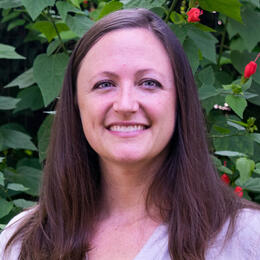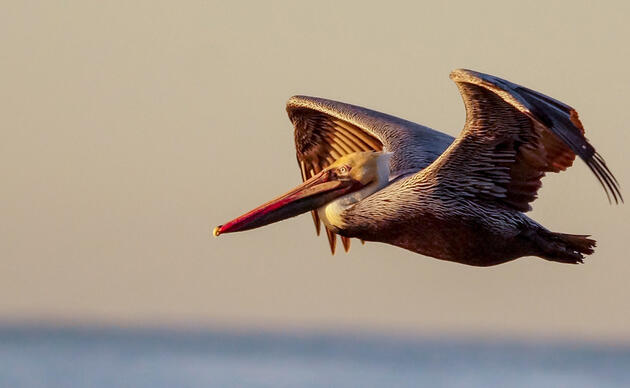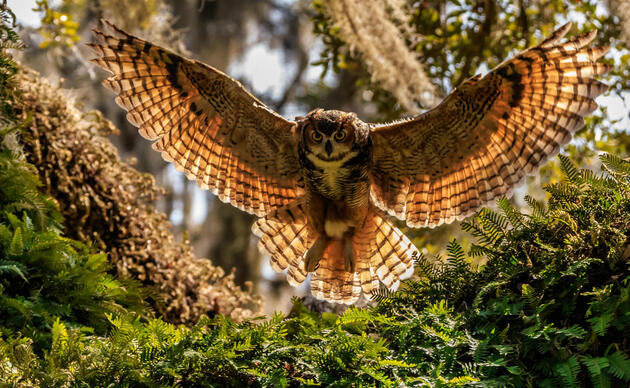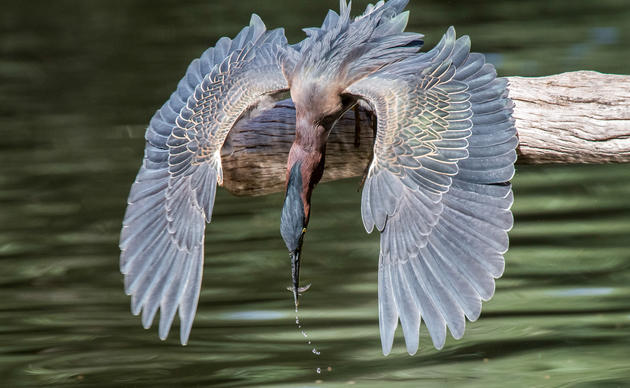The first time I met with Allison Bowden and her Ashley Hall science class, it was a chilly, fall day. The low clouds and drizzle made for conditions one might not eagerly set out in without an unavoidable obligation. But for Mrs. Bowden and the seven seniors who piled out of their cars donning hoodies and rain boots, the dreary weather didn’t seem to faze them in the least.
I was invited to join the class to assess the bird-friendly components of Ashley Hall’s athletic facility in rural Johns Island. Lead by Mrs. Bowden, the group and I set off to explore the grounds, searching the dripping-wet forest for native plant species from which to collect specimens. Being the birder I am, I couldn’t help but bring a pair of binoculars for everyone, because if you’re within eyeshot of a window or outdoors, it’s time to bird!
This was the first outing I took with Mrs. Bowden and her class, but it wasn’t my last. After developing a list of recommendations for creating a more bird-friendly property—including removing invasive plant species, developing a bird species inventory list, and making a few species-specific habitat additions— the class asked me to guide a Pitt Street Bridge bird walk this spring.
Pitt Street, if you’ve never been, rarely disappoints. Its raised walkway, which extends far into the marsh at the end of Pitt Street in the Old Village area of Mt Pleasant, is often flanked with a menagerie of wading birds, shorebirds, warblers, eagles, seabirds, pelicans, and Osprey, to name a few. It’s a great place to sneak a peek at the often heard and rarely seen Clapper Rail, which clack around the marsh erupting in an obnoxious chorus. On the rare occasion they come to open water to bathe, you can see them at the bridge for the briefest of moments, before they slink back into the Spartina to be heard, but not seen, once again.
This gorgeous spring day was no exception. During the hour-and-a-half we strolled the causeway, we saw more than 30 species, including Mrs. Bowden’s favorite: the American Oystercatcher. After many “ooohhs” and “ahhhs,” we ended our walk and returned to the realities of work and school.
Little did I know that back at Ashley Hall, Mrs. Bowden and her team of enterprising students were hard at work rehabbing an old greenhouse on a newly-acquired area of the campus. Using this space, Mrs. Bowden worked with her seniors to propagate and grow succulents, which they planned to sell to school faculty and families as a fundraiser.
After many months of care, watering, and lots of science lessons in between, the fruits of the class’s labor was apparent: their greenhouse was filled with beautiful succulents. Not only did this exercise help them to learn the process of plant propagation, which could later be used to propagate native species for planting around the campus, but the sale was a huge success, netting the students more than six hundred dollars!
When Mrs. Bowden asked the girls what they should do with the proceeds, their decision was quick and unanimous: they would donate the money to Audubon South Carolina. I was absolutely tickled to learn about their project, proud that they had worked so hard, and honored that they chose to donate the proceeds of their sale to Audubon.
In keeping with their wish that the money go to a local project, I have been working on plans to install a school-pollinator garden at an elementary school in downtown Charleston. The Ashley Hall science students were excited to learn that their donation will benefit the peninsula, adding habitat and helping young children living downtown see the birds, bees, and butterflies that will thrive with the installation.
Working with this bright, energetic, and eager group of young women has been inspiring and uplifting—bringing me back to my own days in a high school science program. Seeing how encouraged and inspired they are by their amazing teacher, Allison Bowden, made me recall how much I revered my own teachers, and how their influence helped lead me into a career in the sciences.
I am confident that Mrs. Bowden’s enthusiastic teaching and hands-on experiences are inspiring a new generation of young women in the sciences—and hopefully creating some passionate birders in the process!
Click here to learn more about Audubon South Carolina's Bird Friendly Community program, and how you can get involved.







